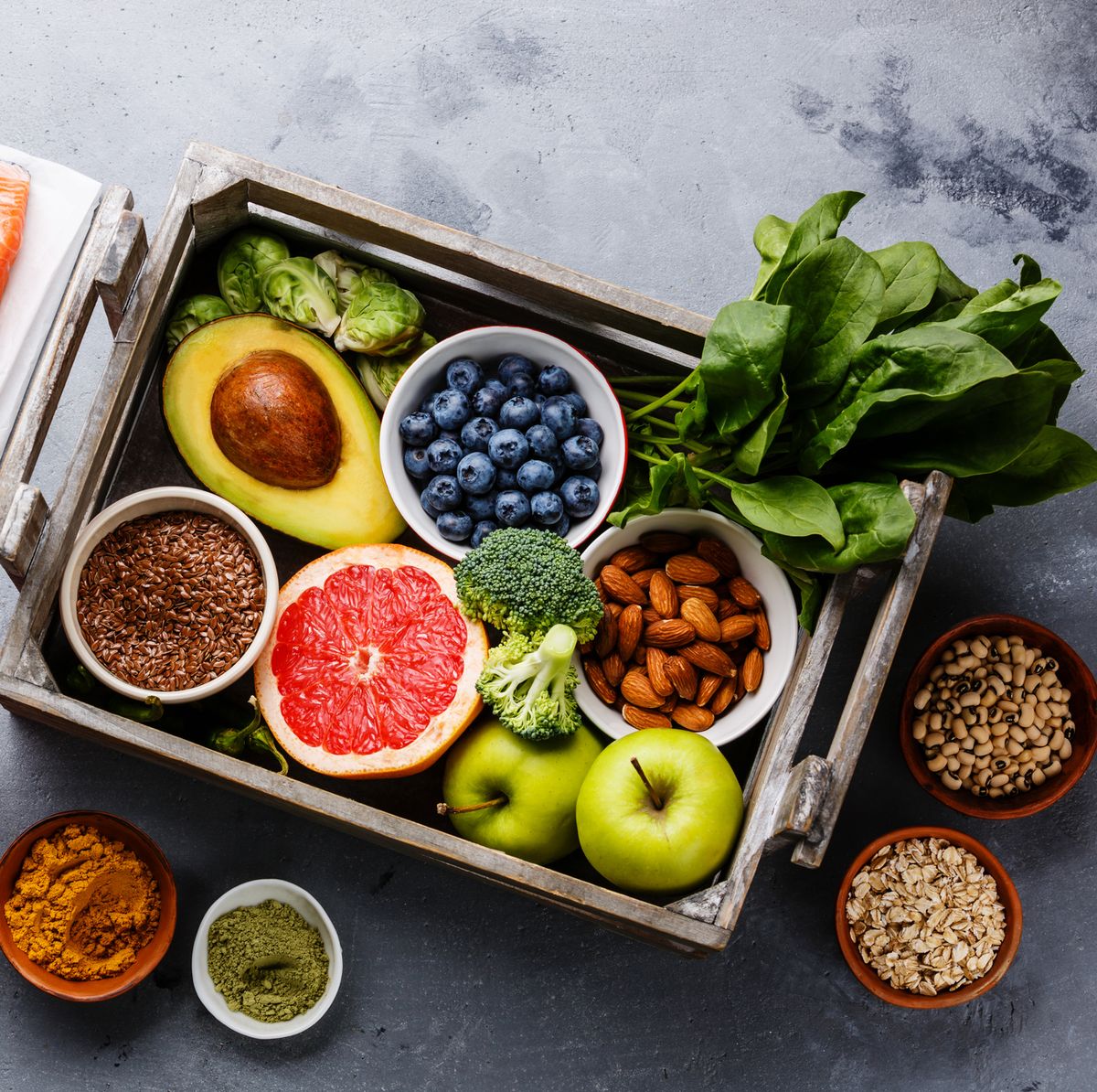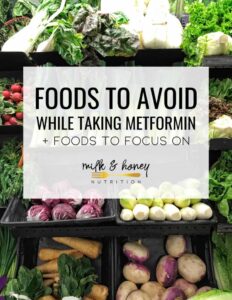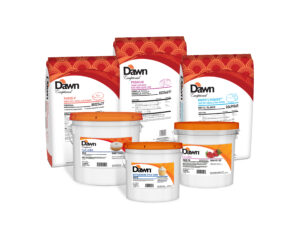Foods that can lower heart rate immediately include bananas and dark chocolate. Eating a balanced diet consisting of fruits, vegetables, whole grains, lean proteins, and healthy fats can help maintain a healthy heart rate.
A healthy heart rate is essential for an overall healthy body. A high heart rate can cause various health problems such as hypertension and heart attacks. There are several ways to lower your heart rate, including regular exercise, stress management, and proper nutrition.
Including specific foods in your diet can also help immediately lower your heart rate. Bananas are rich in potassium, which can help regulate heart rate and lower blood pressure. Dark chocolate contains flavonoids, which can improve heart function and lower heart rate. Additionally, eating a well-balanced diet with lots of fruits, vegetables, whole grains, lean proteins, and healthy fats can help achieve and maintain a healthy heart rate.

Credit: www.prevention.com
Why Is Lowering Heart Rate Important?
Lowering the heart rate might not seem like an important thing to do, but did you know that it can significantly improve your overall health? Our fast-paced lives often put us in situations that trigger our stress hormones and increase our heart rate.
As a result, our bodies release cortisol and adrenaline, leading to an elevated heart rate. High heart rates can negatively impact our health in several ways.
Importance Of Lowering Heart Rate
Lowering the heart rate can have the following benefits:
- Reduces the risk of cardiovascular disease, heart attacks, and strokes.
- Improves sleep quality and quantity
- Alleviates feelings of anxiety, nervousness, and stress
- Increases focus, mental clarity, and concentration levels
- Enhances athletic performance
- Helps manage blood pressure levels
- Promotes relaxation and calmness
Effects Of High Heart Rate
Fast heart rates can cause a host of issues, including:
- Increased risk of heart disease, heart attack, and stroke
- Difficulty sleeping, insomnia and poor quality of sleep
- Mood swings, anxiety disorders, and depression
- Difficulty concentrating and focus
- Unexplained weight gain and loss
- Fainting, dizziness, and vertigo
- Palpitations and irregular heartbeats
Foods To Lower Heart Rate
Certain foods can help lower the heart rate and promote relaxation. These include:
- Bananas: Rich in potassium and magnesium, bananas can help reduce blood pressure and lower the heart rate.
- Oats: Contains high amounts of fiber and nutrients, which can lower blood pressure and reduce cholesterol levels.
- Nuts: Particularly almonds, pistachios, and cashews are rich in magnesium, which helps regulate the heart rate and reduce blood pressure.
- Leafy greens: Vegetables like spinach, kale, and collard greens are high in potassium, which can reduce high blood pressure and lower heart rate.
- Berries: Blueberries and strawberries contain antioxidant compounds called anthocyanins that can dilate blood vessels, reducing blood pressure and relaxing the heart.
Lowering the heart rate is crucial for good health and well-being. Fortunately, certain foods can promote relaxation and lower heart rate. If you’re struggling to keep your heart rate in check, make sure to add these heart-healthy foods to your diet.
1. Dark Chocolate
Explanation Of How Dark Chocolate Can Help In Reducing Heart Rate
Dark chocolate has been known to offer numerous health benefits, including reducing heart rate. It is rich in flavonoids, a type of antioxidants that can help regulate blood pressure and reduce inflammation. Additionally, dark chocolate contains a compound called theobromine, which stimulates the central nervous system and dilates blood vessels, leading to reduced blood pressure.
This combination of flavonoids and theobromine makes dark chocolate a great choice for those looking to regulate their heart rate naturally.
Nutritional Benefits Of Dark Chocolate In Relation To Heart Health
Dark chocolate has an impressive nutritional profile, particularly in terms of heart health. Apart from the antioxidants and theobromine mentioned earlier, dark chocolate is also rich in magnesium, which plays an essential role in maintaining healthy heart function. In addition, dark chocolate contains healthy fats, such as oleic and stearic acids, which have been shown to have heart-protective effects.
Eating dark chocolate regularly can help improve blood flow, reduce inflammation, and prevent blood clots, all of which contribute to better heart health.
Recommended Serving Size Of Dark Chocolate
While dark chocolate does offer a range of health benefits, it is still high in calories and fat, which is why it is important to consume it in moderation. According to experts, stick to a serving size of 1 ounce of dark chocolate, many of which offer 70% or higher cacao content.
This typically translates to about 170 calories, so make sure to balance your calorie intake throughout the rest of the day. Additionally, opt for organic, fair-trade dark chocolate, which is free of harmful chemicals and supports ethical farming practices.
Dark chocolate is a delicious and healthy way to lower heart rate naturally. By incorporating it into your diet in moderation, ideally as a dessert or snack, you can take advantage of its vast array of health benefits and support your cardiovascular health.
2. Avocado
Heart rate is an essential indicator of our cardiovascular health. A high heart rate can be an alarming symptom of various health conditions, and it is crucial to lower it immediately. One way to do this is by incorporating certain foods into our diet.
Avocado is a delicious and nutritious fruit that can help in reducing heart rate instantly.
Explanation Of How Avocado Can Help In Reducing Heart Rate
The main reason why avocado is beneficial in reducing heart rate is because of its high potassium content. Potassium is an essential mineral that helps regulate fluid balance in the body, which affects the heart rate. Avocado is loaded with potassium, containing almost twice as much as bananas.
Nutritional Benefits Of Avocado In Relation To Heart Health
Apart from being an excellent source of potassium, avocado is a rich source of heart-healthy monounsaturated and polyunsaturated fats that help lower bad cholesterol levels (ldl cholesterol). These healthy fats also have anti-inflammatory properties that reduce the risk of heart disease and protect the heart from further damage.
Moreover, avocado is rich in vitamins c, e, and k, which are essential for overall cardiovascular health.
Recommended Serving Size Of Avocado
It is essential to consume the right serving size of avocado to get its maximum nutritional benefits. A reasonable portion size is one-third to one-half of a medium avocado per day. You can add it to your smoothie, salad, or sandwich to make it more delicious and nutritious.
Incorporating avocado into your diet is an easy and delicious way to lower your heart rate and improve your overall cardiovascular health. It contains essential nutrients that not only help lower heart rate but also protect the heart from further damage.
Go ahead and try this heart-healthy fruit today!
3. Leafy Greens
Explanation Of How Leafy Greens Can Help In Reducing Heart Rate
Leafy greens such as spinach, kale, and collard greens are packed with phytochemicals, vitamins, and minerals like potassium, magnesium, and calcium. These nutrients help in several ways to lower heart rate and keep the heart healthy.
Nutritional Benefits Of Leafy Greens In Relation To Heart Health
The nutritional contents of leafy greens help in reducing heart rate as they provide a combination of nutrients that support a healthy cardiovascular system. Here are some nutritional benefits of leafy greens:
- Potassium in leafy greens relaxes arterial walls and lowers blood pressure, which reduces the workload of your heart while improving blood flow.
- Leafy greens are a great source of dietary nitrates which help in relaxing blood vessels and improving blood flow.
- The abundance of antioxidants such as vitamin c and e help in decreasing inflammation and oxidative stress in the cardiovascular system, which can reduce heart rate.
- Magnesium in leafy greens helps to relax the muscles surrounding the blood vessels and heart to regulate the heartbeat and ensure that arteries dilate properly.
Recommended Serving Size Of Leafy Greens
It is recommended that adults get at least 2. 5-3 cups of leafy greens per week, which is about 2-3 servings. A serving is about 2 cups raw leafy greens or 1 cup cooked leafy greens. Here are some ways you can incorporate more leafy greens into your diet:
- Add a handful of spinach or kale to your morning smoothie or omelet.
- Use collard greens or chard in your sandwiches or wraps instead of lettuce.
- Enjoy a mixed green salad as a side dish with your meals.
- Sauté some greens with a little garlic and olive oil as a tasty side dish or topping for your favorite protein.
Leafy greens are an excellent addition to your diet if you want to improve heart health and reduce heart rate. By including enough leafy greens in your meals, you can achieve a healthy heart and a better quality of life.
4. Walnuts
Explanation Of How Walnuts Can Help In Reducing Heart Rate
Walnuts are known for their numerous health benefits, including the ability to lower heart rate. The high levels of omega-3 fatty acids and antioxidants present in walnuts help in reducing inflammation, which is a significant contributor to heart diseases. Additionally, walnuts contain arginine, an amino acid essential for the production of nitric oxide, which relaxes the vessels and improves blood flow, eventually reducing heart rate.
Nutritional Benefits Of Walnuts In Relation To Heart Health
Walnuts are packed with essential nutrients, making them an excellent addition to a heart-healthy diet. They are an excellent source of heart-healthy monounsaturated and polyunsaturated fats, including omega-3 fatty acids that can help reduce the risk of heart diseases. Besides, they contain essential minerals like magnesium, which acts as a natural blood thinner, reducing arterial wall stiffness, cholesterol levels and reducing heart rate.
Recommended Serving Size Of Walnuts
Consuming walnuts in moderation can provide significant health benefits, including lowering the heart rate. The american heart association recommends an intake of about 1. 5 oz. Of walnuts daily, equivalent to one-fourth of a cup. This serving size contains approximately 190 calories, 4 grams of protein, and 2 grams of fiber, a great benefit to your overall health.
Walnuts are an excellent choice for individuals looking to lower their heart rate. Their high omega-3 fatty acid, antioxidant, and arginine content reduces inflammation, improves blood flow, and relaxes blood vessels, all of which make a significant difference in reducing heart disease risk.
By adding walnuts to your diet, you can enjoy these nutritional benefits while promoting overall heart health.
5. Berries
Berries are a delicious and nutritious way to lower heart rate immediately. Incorporating them into your diet may reduce the risk of heart disease and improve overall heart health. Here are the key points about how berries can help in reducing heart rate:
Explanation Of How Berries Can Help In Reducing Heart Rate
- Berries are a rich source of flavonoids, which are naturally occurring compounds that have been shown to help lower blood pressure and improve blood vessel function.
- They also contain antioxidants that protect against the oxidative stress that can damage blood vessels and contribute to heart disease.
- Berries may also help reduce inflammation in the body, which can contribute to cardiovascular disease.
Nutritional Benefits Of Berries In Relation To Heart Health
Berries have numerous nutrients that can support heart health, including:
- Fiber: Berries are a good source of fiber, which can help lower cholesterol levels and reduce the risk of heart disease.
- Vitamin c: Berries are an excellent source of vitamin c, which can help reduce inflammation and improve blood vessel function.
- Potassium: Berries are a good source of potassium, which can help lower blood pressure and reduce the risk of heart disease.
- Anthocyanins: These are pigments that give berries their rich color and are associated with a lower risk of heart disease.
Recommended Serving Size Of Berries
It is recommended that adults consume at least 1 1/2 to 2 cups of berries per day. Here are some serving sizes for common types of berries:
- Strawberries: 1 cup
- Blueberries: 1/2 cup
- Raspberries: 1 cup
- Blackberries: 1 cup
Incorporating berries into your daily diet is an easy and delicious way to support heart health and lower heart rate. Adding them to your morning smoothie, cereal, or yogurt is a simple way to get your daily dose of berries.
6. Garlic
Garlic is a versatile ingredient that is often used to add flavor to many dishes, but did you know that it can also help in reducing heart rate? Yes, you read that right. Garlic is rich in compounds that have been shown to improve heart health and reduce the risk of cardiovascular disease.
Here’s what you need to know about this amazing ingredient.
Explanation Of How Garlic Can Help In Reducing Heart Rate
Garlic contains a compound called allicin, which has been shown to have various health benefits, including reducing blood pressure and heart rate. Allicin works by relaxing blood vessels, making it easier for blood to flow through them, thereby reducing the workload of the heart.
Additionally, garlic contains sulfur compounds that help to reduce inflammation, another factor that can lead to cardiovascular disease.
Nutritional Benefits Of Garlic In Relation To Heart Health
Apart from its heart-protective compounds, garlic is packed with essential nutrients that are important for overall health. Here are a few of the key nutrients found in garlic that benefit heart health:
- Potassium: This mineral is essential for regulating blood pressure and heart rhythm.
- Vitamin c: An antioxidant that helps to protect the heart and blood vessels from damage.
- Vitamin b6: This vitamin helps to reduce levels of homocysteine, an amino acid that can damage blood vessels and increase the risk of heart disease.
Recommended Serving Size Of Garlic
For maximum heart health benefits, it is recommended that you consume at least one clove of fresh garlic per day. However, many people find it challenging to eat raw garlic due to its pungent taste and odor. Here are a few tips to help you incorporate more garlic into your diet:
- Crush or chop garlic and let it sit for a few minutes before cooking to activate its heart-protective compounds.
- Add garlic to soups, stews, and sauces for a boost of flavor and nutrition.
- Consider taking garlic supplements if you are unable to consume it in its natural form.
Garlic is a superfood that holds tremendous potential in maintaining a healthy heart rate. Its compounds assist in reducing blood pressure and heart rate while promoting a healthier heart. Eating garlic regularly can aid in keeping your heart healthy and free from cardiovascular diseases.
7. Tomatoes
Foods To Lower Heart Rate Immediately
Eating certain foods can significantly reduce your heart rate, which is beneficial for overall cardiovascular health. One such food that has been shown to have this effect on the body is tomatoes.
Explanation Of How Tomatoes Can Help In Reducing Heart Rate
Tomatoes contain a powerful antioxidant called lycopene which has anti-inflammatory properties. Inflammation can damage blood vessels and raise the risk of heart disease. By reducing inflammation, lycopene can help to lower heart rate by reducing the workload on the heart.
Additionally, tomatoes contain potassium, which can regulate heart rhythm and lower blood pressure.
Nutritional Benefits Of Tomatoes In Relation To Heart Health
Tomatoes are a nutritional powerhouse and can provide various other benefits to the heart. Here are some of the key nutritional benefits of tomatoes:
- High in vitamin c: Helps to prevent heart disease by protecting against oxidative damage.
- Rich in fiber: Can help to lower ldl (bad) cholesterol levels by binding to excess cholesterol in the blood and carrying it out of the body.
- Low in calories and fat: Can help to maintain a healthy weight, which is beneficial for heart health.
Recommended Serving Size Of Tomatoes
The recommended serving size of tomatoes varies depending on different factors such as age, gender, and overall health. However, a general guideline is to consume one cup of chopped tomatoes or a medium-sized tomato per day. This amount can provide the nutritional benefits discussed above and can help to reduce heart rate.
Overall, incorporating tomatoes into your diet can be a simple and effective way to lower heart rate and improve your overall heart health.
8. Oatmeal
Explanation Of How Oatmeal Can Help In Reducing Heart Rate
If you’re looking for a quick and easy way to reduce your heart rate, oatmeal might be the solution you need. Here’s how it works:
- Oatmeal contains high levels of soluble fiber, which helps to lower total cholesterol levels, including ldl, or “bad” cholesterol. This can help improve heart health and reduce the risk of heart disease.
- By reducing cholesterol levels in the blood, oatmeal can also help to lower blood pressure and reduce the risk of hypertension, which can be a major contributing factor to high heart rate.
- Additionally, oatmeal is a complex carbohydrate that is digested slowly, providing a steady stream of energy throughout the day and helping to regulate blood sugar levels. This can help to prevent spikes and drops in blood sugar that can contribute to changes in heart rate.
Nutritional Benefits Of Oatmeal In Relation To Heart Health
There are many nutritional benefits of oatmeal that make it an excellent choice for improving heart health. Here are just a few:
- Oatmeal is a good source of dietary fiber, which can help to reduce cholesterol levels in the blood and improve heart health. A cup of cooked oatmeal contains approximately 4 grams of fiber.
- Oatmeal is also a good source of vitamins and minerals, including thiamin, magnesium, phosphorus, zinc, and manganese, which are all important for maintaining cardiovascular health.
- Oatmeal is a low-glycemic index food, which means that it causes a slower and smaller rise in blood sugar levels compared to high-glycemic index foods. This can help to reduce the risk of developing type 2 diabetes, which is a major risk factor for heart disease.
Recommended Serving Size Of Oatmeal
To experience the heart-healthy benefits of oatmeal, it’s important to consume an appropriate serving size. Here’s what you need to know:
- A standard serving size of oatmeal is 1/2 cup of rolled oats or 1 packet of instant oatmeal.
- It’s recommended that adults consume at least 3 servings of whole grains, such as oatmeal, per day for optimal health.
- To make your oatmeal even more heart-healthy, try adding fresh berries or sliced banana for additional fiber, vitamins, and minerals.
By incorporating oatmeal into your daily diet, you can improve heart health and reduce your risk of heart disease and high heart rate. So why not start your day off right with a delicious bowl of oatmeal?
Frequently Asked Questions Of Foods To Lower Heart Rate Immediately
What Are The Best Foods To Lower Heart Rate?
Foods that contain magnesium, potassium, and fiber such as leafy greens, bananas, and oats are great for lowering heart rate.
Can Caffeine Increase Heart Rate?
Yes, caffeine is a stimulant that can increase heart rate. It’s best to limit caffeine intake.
What Should I Avoid Eating To Lower My Heart Rate?
Avoid processed foods, saturated and trans fats, and excess sugar to help lower and maintain a healthy heart rate.
Can Exercise Lower Heart Rate?
Yes, exercise can help lower resting heart rate by making the heart stronger and more efficient.
How Long Does It Take For Food To Lower Heart Rate?
This can vary based on the individual and the type of food consumed. Generally, it can take anywhere from a few minutes to an hour.
Conclusion
Lowering heart rate is a crucial aspect of maintaining a healthy heart. By including certain foods in your diet, you can immediately lower your heart rate and keep your heart healthy. Foods rich in omega-3 fatty acids like fatty fish, nuts, and seeds have been proven to be effective in reducing heart rate.
Dark chocolate, rich in flavanols, can also help regulate heart rate. Herbal teas like chamomile and lavender have a calming effect on the mind and body, lowering heart rate. Lastly, magnesium-rich foods like spinach, avocado, and bananas can also help lower and regulate heart rate.
By incorporating these foods into your diet, you can regulate your heart rate, improve your heart health, and lead a healthier life. Remember to maintain regular exercise and consult with your doctor before making any drastic dietary changes.







